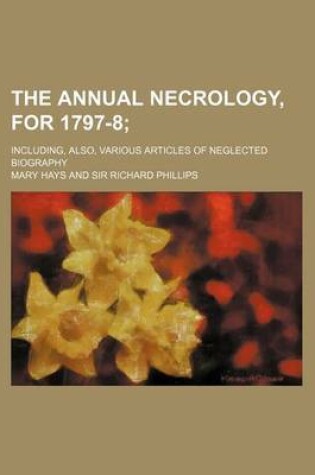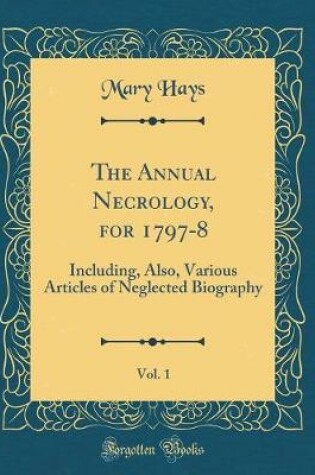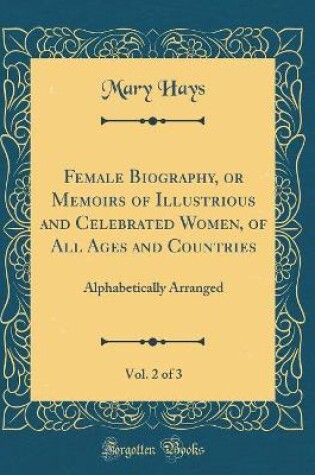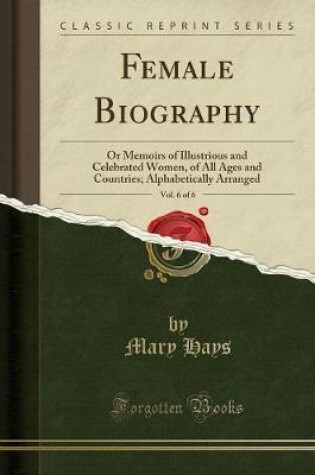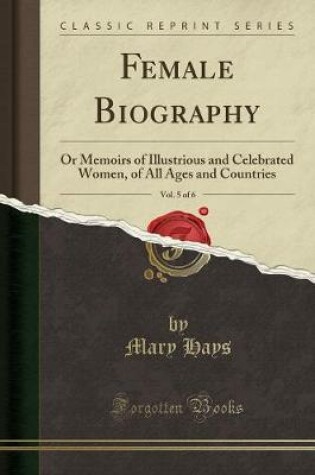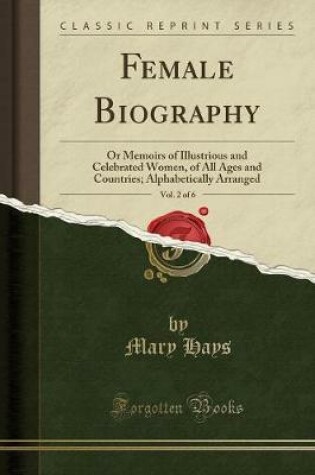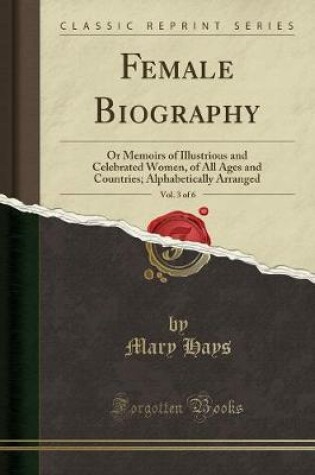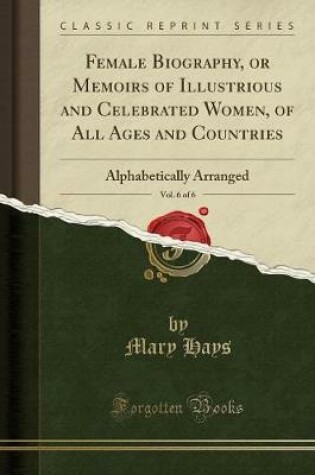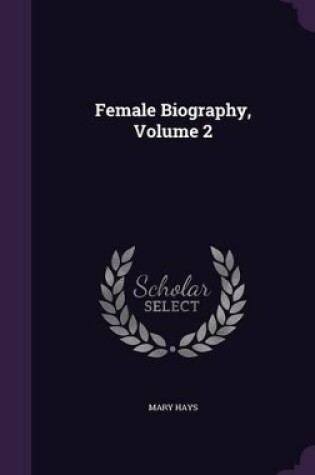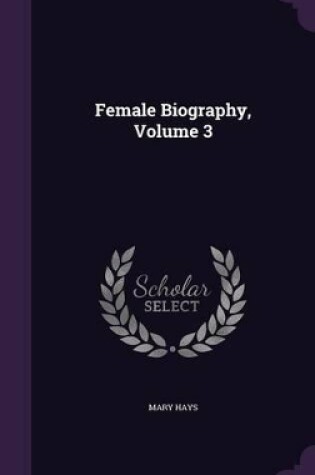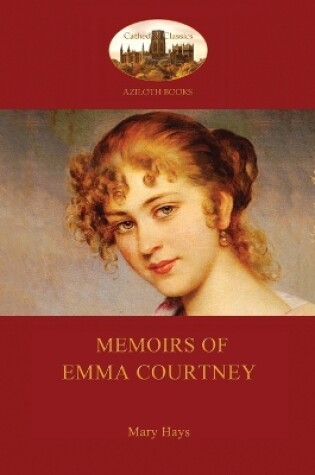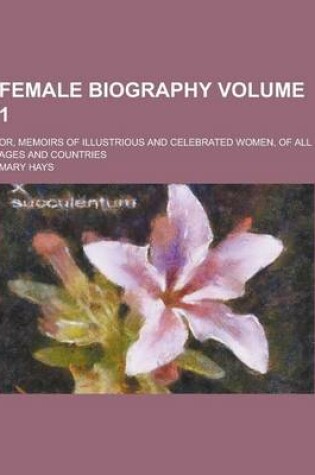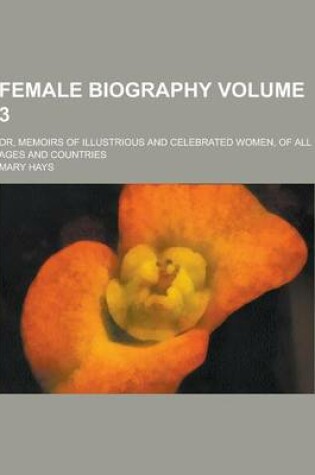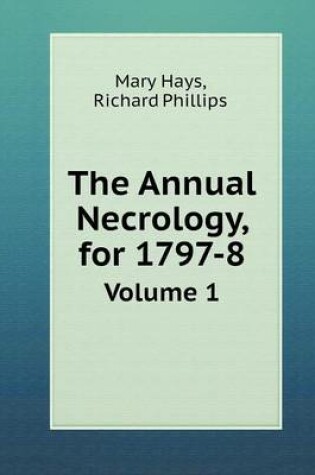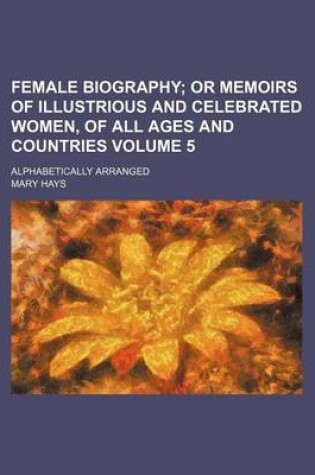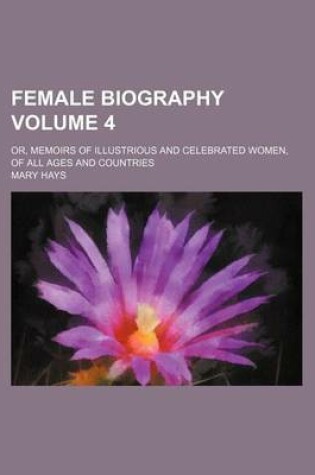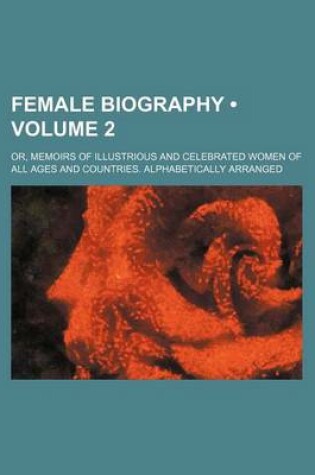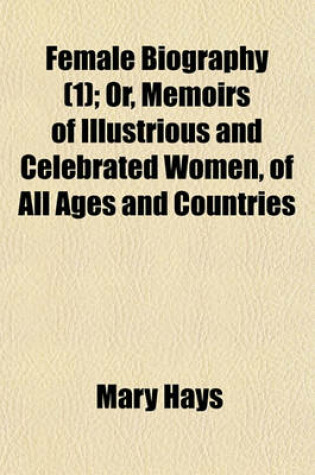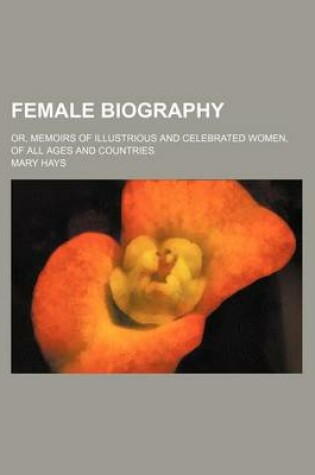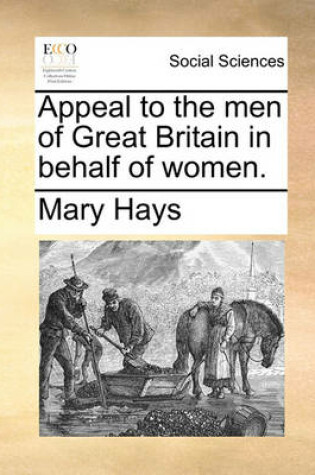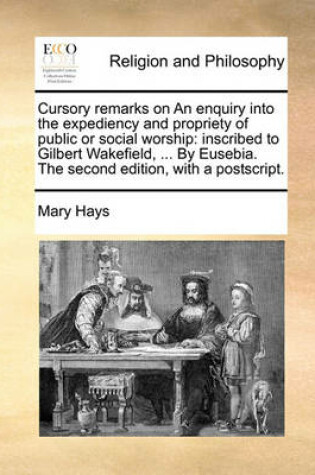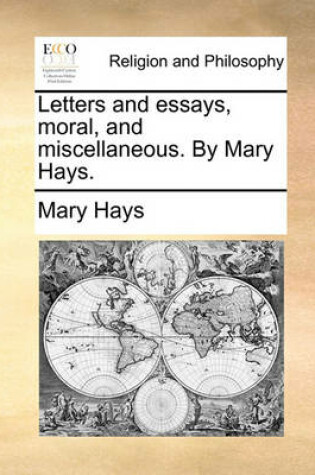Mary Hays (1759-1843) was an English writer and feminist. Born in London to a family of Protestant dissenters, Hays grew up in a politically and intellectually radical household. In 1777, she me John Eccles, with whom she exchanged dozens of letters despite her family's disapproval of the match. Although they were eventually engaged to be married, Eccles died unexpectedly in 1780. Devastated, Hays turned her back on a life of marriage and motherhood in order to pursue a career as a writer and radical feminist. In 1792, Hays read Mary Wollstonecraft's A Vindication of the Rights of Woman, a groundbreaking work of political philosophy and an early feminist text that argues for the education of women as well as for the need to recognize them as rational, independent beings. Deeply inspired, Hays published her first book, Letters and Essays (1793), and befriended both Wollstonecraft and William Godwin, a writer and political philosopher whose Enquiry Concerning Political Justice (1793) is considered a pioneering work on anarchism. In 1796, Hays published her most famous work, an epistolary novel titled Memoirs of Emma Courtney, an immediately controversial text that has since been recognized as one of the most important works of fiction of the 1790s. In 1803, having fallen out with Godwin, Hays struggled to publish due to her association with radical figures. Her Female Biography is a detailed work recording the lives and achievements of 294 women from the ancient to the contemporary world. Often remembered more for her connection to Wollstonecraft than for her own literary accomplishments, Hays has recently been recognized as an unjustly overshadowed figure whose fictional, historical, and philosophical works display not only a mastery of the English language, but an unwavering commitment to the feminist cause.
